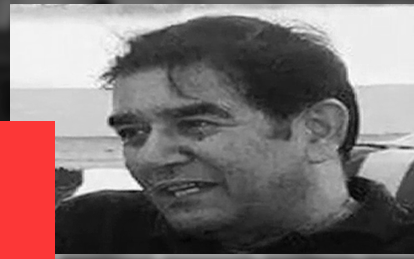JB Connects celebrated the opening of its new office in Karachi on July 20, 2025, bringing forth notables to assess its 18 month performance. Civil society representatives said that Jawaid Bhutto’s sufistic philosophy to bring people together to achieve change was already paying off. They maintained that digital media posed a challenge to traditional media, with it being more difficult to control. At the same they said that the topics being selected were those which enabled society to grow collectively.
First Anniversary of JB Connects
US Campus Protests for Gaza Catch Fire
jbconnects.pk
Review of Aboard the Democracy Train
| By Muhammad Hussain – Balochistan “Abroad the Democracy Train” is a compelling and insightful account of Pakistan’s tumultuous political journey over the last decade of democracy. Through the lens of her own experiences as a journalist, Nafisa Hoodbhoy provides readers with a firsthand look into the challenges and triumphs of Pakistan’s struggle for democratic governance .Hoodbhoy’s narrative is both engaging and informative, offering a nuanced understanding of the complex political landscape in Pakistan. From the highs of democratic elections to the lows of military coups and political turmoil, she chronicles the country’s tumultuous path with clarity and depth. One of the book’s strengths is its focus on the individuals and voices at the forefront of Pakistan’s democratic movement. Through vivid anecdotes and personal accounts, Hoodbhoy brings to life the stories of activists, journalists, and ordinary citizens who have played pivotal roles in shaping Pakistan’s political destiny. Moreover, “Abroad the Democracy Train” offers valuable insights into the challenges facing Pakistan’s democratic institutions, including issues of corruption, censorship, and political polarization. Hoodbhoy’s analysis is incisive and thought-provoking, shedding light on the complexities of governance in a country marked by deep-seated divisions and competing interests. Overall, “Abroad the Democracy Train” is a must-read for anyone interested in understanding the dynamics of Pakistani politics and the ongoing struggle for democracy in the region. Hoodbhoy’s journalistic expertise, combined with her deep empathy for the people of Pakistan, makes this book an essential addition to the literature on South Asian politics and society. |
Five Years Later
A Philosopher Seeks Truth and Beauty in Nature
JB Connects Arrives
Coming Soon
Hilman Jordan Deemed Competent to Stand Trial

DC Superior Court judge Lee Milton ruled on Feb 24, 2023 that Hilman Jordan, who assassinated Jawaid Bhutto almost four years ago, was competent to face trial.
The ruling was issued after seven months of Jackson hearings, during which psychiatrists from both the government and defense side presented their findings that supported their argument for competency versus incompetency.
More than 10,000 mentally ill Americans who were found not guilty of criminal acts by reason of insanity or judged incompetent to stand trial were confined in psychiatric hospitals between 1999 and 2016.2 If and when they are released depends on a jurisdiction’s law and on psychiatric evaluations.
The federal government and many states provide for conditional release only after psychiatrists testify that a patient is no longer a threat to society. Even then, a judge must approve the decision and the court must continue to oversee the patient, who faces routine psychiatric evaluations and monitoring in the community. Of the 33 states that responded to a 2017 survey by an association of mental health directors, 28 reported they have provisions for conditional release.3
In 1983, the Supreme Court ruled that under the U.S. Constitution, courts can commit to state mental hospitals — automatically and indefinitely — defendants acquitted on insanity grounds. But some states, such as California, limit the hospital stay to the maximum prison sentence for the offense.4
The national average hospital stay of such defendants is five to seven years, according to the 2017 survey. A New York Times study of 28 states found that nearly 1,000 such patients had been hospitalized for five to 15 years, while more than 400 had been in longer than 15 — and 100 of those had been in longer than 25 years.5
Experts say that compared with prison inmates, the recidivism rate for defendants acquitted due to insanity and later released from mental hospitals is comparatively low. A 2018 U.S. Department of Justice study found that among individuals released from state prisons in 2005, about 83 percent were arrested for a new offense within the next nine years.6 But a 2016 study of Connecticut defendants released from mental hospitals found about a 16 percent recidivism rate. Studies in Maryland and Oregon found even lower rates — 4 percent and 2.6 percent, respectively.7
The insanity defense is “for people who commit criminal acts not because they are criminal by nature, but because they have an illness,” Fitch says. “And if you treat the illness and provide the other supports the person needs to do well in the community, they’re not likely to reoffend.”
Defendants who win acquittal by reason of insanity typically have an illness such as schizophrenia — a chronic brain disorder that affects the way a person behaves and sees the world — that includes the symptom of psychosis, a loss of contact with external reality. Those conditions often respond well to medication, Fitch says, but the illnesses last a lifetime, so courts do not grant release unless they believe the patient will remain on medication and be closely monitored.
John Hinckley Jr., acquitted on insanity grounds in 1982 in the attempted assassination of President Ronald Reagan, spent nearly 35 years at St. Elizabeths, a psychiatric hospital in Washington, before he was released in 2016. Since then, Hinckley — who said during his trial that he had suffered from major depressive syndrome and schizophrenia — has been monitored by the court and psychiatrists while he lives with his mother in her Williamsburg, Va., home.8
Hinckley recently reported to psychiatrists that he feels “the best I’ve ever felt in my life.” A federal judge has granted him more freedom as he continues to show he is not a threat to public safety. On Sept. 10, Hinckley’s attorneys said they would request unconditional release for their client.9
But sometimes patients do reoffend. In March, Hilman Jordan of Washington was arrested and charged with first-degree murder in the shooting death of Javed Bhutto, 63, a neighbor and former philosophy professor.

Bhutto’s widow, Nafisa Hoodbhoy, said the killing never should have happened: 17 years earlier, Jordan had shot to death a relative and a longtime friend. He was acquitted by reason of insanity and confined at St. Elizabeths, where he was treated for schizophrenia and paranoia. In 2015, Jordan was released after the hospital and authorities decided he was doing well enough to leave.
Phyllis Jones, chief of staff for the D.C. Department of Behavioral Health that is responsible for overseeing Jordan, said Jordan “was in compliance with the conditions of his discharge.” But Hoodbhoy said the department did not properly monitor Jordan.
Excerpted from:
The Insanity Defense
By Christina L, Lyons

Homicide Defendant’s Attorneys Challenge Psychologists’ Evaluation Results

By Ashley Brown [former]– September 13, 2022
Court | Daily Stories | Homicides | Shooting | Suspects | Victims |
The results of a mental evaluation for a murder defendant were challenged by the defense.
Bobby Jordan, 47, who is also known as Hillman Ray Jordan, is charged with first-degree murder while armed, possession of a firearm during a crime of violence, and carrying a pistol without a license in connection with the fatal shooting of 64-year-old Jawaid Bhutto. This incident occurred on March 1, 2019, on the 2600 block of Wade Road, SE.
During the hearing, which took place on Sept. 12 and Sept. 13, two expert witnesses testified about their findings on Jordan’s mental state.
Both witnesses are experts in forensic psychology.
According to one of the witnesses, Jordan suffers from paranoid schizophrenia, citing auditory delusions as the symptom that most frequently impairs his ability to form rational and logical thoughts.
After conducting several interviews with Jordan from April of 2021 to October of 2021, the expert witnesses concluded that he was competent to stand trial, saying the determination was rooted in the defendant’s demonstrated abilities to effectively work with his counsel and exhibit a factual, rational, and logical understanding of his case.
The experts drew this conclusion from the progress Jordan displayed during their initial evaluation in April of 2021 to their fourth and final evaluation in October of 2021. Both psychologists said the defendant was “alert” and “less distracted,” during their last evaluation, which attributed to his improvement while on a medicine regimen, taking part in cognitive behavioral therapy, developing better sleeping habits, and abstaining from substances over the 6-month period.
Despite this conclusion, Jordan’s defense attorneys, Dana Page and Christen Philips, said Jordan was incompetent to stand trial based on the previous three evaluations that deemed him incompetent.
Page questioned one of the witnesses’ credibility, citing their Facebook posts, which she alleged were “anti-Black Lives Matter” in nature. She speculated as to whether the witnesses’ “racial biases” influenced their competency evaluation of Jordan.
D.C. Superior Court Judge Milton Lee permitted both parties to question the witness about racially biased concerns.
The hearing is set to continue for the next few days as the witness is further questioned and a determination can be reached


